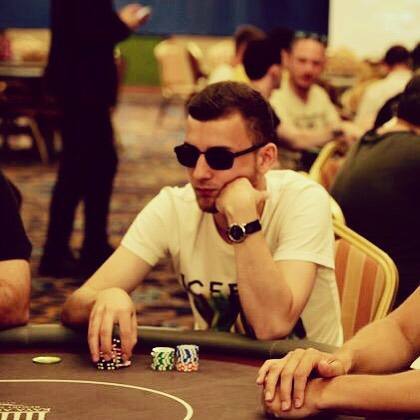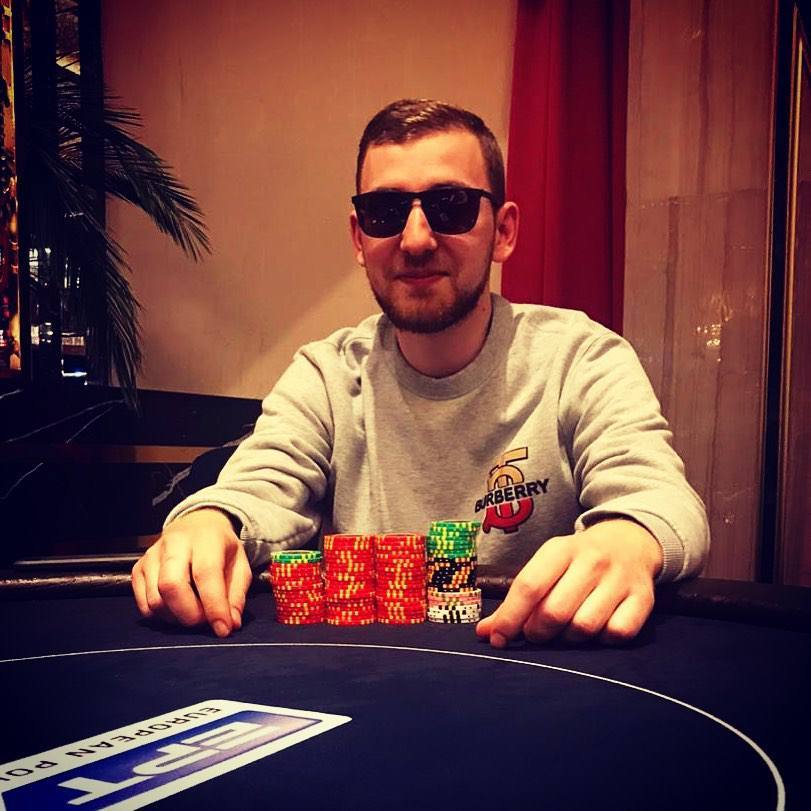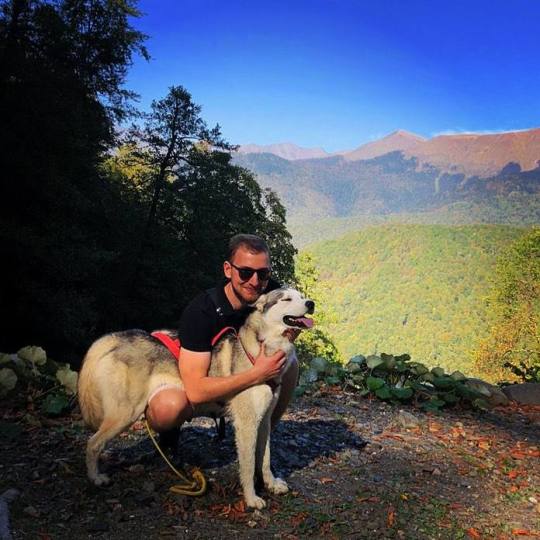Orthodoxxxx's interview

Today we are talking to Orthodoxxxx, the only person who has been playing in the pool since its appearance, and this, so that you understand, was April 2016!
— Let's start from the very beginning. How did you start playing poker?
— It's hard to remember the very origins, but I started when I was at school.
— You can't do it until you're 18! :)
— It only attracted me.
— Have you registered an account in a room?
— No, at that time I was playing offline. My brother went to Moscow underground gambling dens and he was also playing small stakes on Pokerstars. He would often play at night. I had to be in bed, but I would come to him and watch him play.
— So, you can say that your family ties brought you to this world.
— Yeah. And then I gradually got into the taste. I went to gambling dens with him, sometimes he sat me down at the table, which was very inspiring. And then, when I turned 18, I could already register (I didn't register until I came of age, following the law). I got 50$ on Pokerstrategy and played one-dollar HU.
— Do you remember what year it was?
— It's been a long time, 2009-2010, approximately. Then I was rather having fun. There was a period when I haven’t been playing at all, for a whole year. During my university days, I downloaded the Pokerstars app. And just then, the spins appeared. I entered there from my phone, began to spin, starting with three and seven-dollar ones, I played it like a fish. I brought my bankroll to a thousand and decided that it was time to approach poker more professionally, to study the theoretical basis.

— Did you start studying it by yourself or did you join something?
— At first, I studied more by myself. And when I set out to study everything thoroughly, Hyperschool appeared. At the start, it gave me a wonderful boost. At that time, it was the top content, thanks to those training sessions that I could go such a long way. Although in retrospect, I understand that I was playing very badly then :) It was just enough to beat that field. But I have made my fundamental steps in poker over the past two years.
Everything that existed before was very formulaic, no one considered poker from the game theory and mathematics point of view. From the moment I started looking at poker as I looked at mathematical problems — I began to feel my advantage over most of the regs of my stakes. And now I continue to move in this direction. It seems to me that most players make this mistake: they use solvers, try to memorize some strategies, but do not dig into the mathematical background.
— But after all, most players do not have a mathematical background and, therefore, such an opportunity.
— I think that in general, there’s nothing for you to do in poker with no mathematical background, if you want to earn proper money.
— And proper money is..?
— For example, if you wanna beat 100+ stakes and earn 5k $ and more.
— That is, a poker player who wants to earn a lot in 2021 needs to go to a mathematical university first?
— I can't say about such a thing as a university, ‘cause in the modern world, visiting them has ceased to be a necessity. I like private education much more. If I wanted to learn a new profession, I would go to a specialised expert.

— But at the same time, you have an education?
— Yes. I graduated from the Faculty of Economics of Moscow State University.
— And they taught you mathematics there? Generally, did the disciplines that you studied at the university come in handy later?
— I had a difficult relationship with my studies. There were many contradictions: on the one hand, I wanted to play and devote time to it, on the other — my parents pressured me to study. As a result, I was trying to kill two birds with one stone for several years and it didn't work out for me: I was expelled twice and then I was reinstated. Nevertheless, I graduated from MSU and with that I’m satisfied.
I have formed a good economic background. Game theory was a whole separate subject, and I believe that every person who wants to beat decent stakes is simply obliged to study this discipline.
— Let's talk about the pool now. Do you remember how this idea came about?
— I remember the first pool table perfectly, there were 7 of us and we were just splitting the profit proportionally to EV, very basic. But even then it seemed like a cool idea.

— And you were the person who was actually counting everything?
— Yes, I was then engaged in Hyperschool finances. I was applying my knowledge in finance and was satisfied with my work. There were the so-called “players' notebooks” — Google docs with a huge dossier on each player, his game results by month and splits. When you recall all this, it seems that we are talking about the XIX century or something like that :)
Everything was very simple and homey. Then the pool began to increase. People realized that this was a working scheme. There were new ways of the split, everything began to change and become automated, “notebooks” became a thing of the past and gradually I stopped participating in administrative matters, I could no longer devote enough time to this.
— What else do you remember from those times?
— Everyone who was in the school was communicating in Slack and on the forum. At first, we had only Russian-speaking regs, for the first couple of years there were no foreigners at all. But it turned out that all the Russian-speaking regs who, in principle, wanted to play in a pool, were with us. In fact, HS became the first public pool that was introduced to the market. Later, alternatives appeared. Due to the fact that the school was functioning, there was a lot of communication and action. Now everything is quieter, there is less sense of teamwork.
— And is it important for you to feel like a part of the team?
— Sometimes it's nice, but there is a difficult moment: you don't want to feel like a part of just any team at all. There are a lot of players in the pool, those who play low stakes, the highest ones; there are good and bad players or average ones. If you think idealistically, it would be great to have some small conferences depending on the stakes you play, where you could discuss some hands with your equals, etc.
— But for this, there must be enthusiasts who would support communication. Conferences will not survive on their own.
— Yes, absolutely. But I’m one of those people who would like such things to exist without personally making it happen. I'm even too lazy to write to a reg, who I once played 15s with, and now we cross each other on 100s. I sometimes write him a polite “hi" in the chat, but to fully discuss something — I never get around to it.
Although, when I was completely immersed in poker and started studying game theory and mathematics, I began to hatch plans to make a training course. But there are a lot of difficulties here, this is not an announcement :) It's just that I used to train a few people and was happy with what was happening, I felt that the guys began to understand the game better.
At the same time, I don't want to strengthen the field. But if a person is motivated to work and study, he will find loopholes to fight you on your stakes.

— Have you thought about how your project would differ from many others?
— I would make a video cycle, like a completed university course. This would definitely not be a format like "here we play this way, because the field plays this way". There is a feeling that people are now being taught the way a hare would be taught to play the drum: they are given templates and their brain is sort of forced to be in a tight frame, they are taught to play using a solver. And I think that people need to understand why the solver acts in a certain way, and what generally underlies the solver. I want to give them a fishing rod, not a fish. In my dreams, in two years I’m doing this.
— That long?
— I plan to beat 500 first.
— And what are you playing now?
— Now I'm mixing three stakes: 50, 100 and 250. This is a profitable combination to reach the leaderboards on Pokerstars.
— And how do you feel on 250?
— I started adding 250 only last month. I feel great, actually. But in the last two months, I have developed a hard downstreak on the flashes. I played about 5000 flashes with chipEV 2. Despite the fact that I have played about 500 tournaments with chipEV 90 on the regular spins. Flashes are quite a disgusting discipline :) But I have to play them, they allow me to save time. I try to work on my game for 3-4 hours every day, and if I played regular spins for 200-300 games a day, I would not have any time left.
But 250 stake is a good step for me. When playing on 25-50 stakes, I thought about those who were playing 250, as if they were some kind of deities. And now I see that these are the same guys, they don't do anything so special.
— Do you have any favorite or unfavorite opponents?
— This is a whole different story. Sometimes you have a specific downstreak, and the same people begin to methodically show you the top of their range in each hand. And you think: enough with that already! When I was younger and less bright, sometimes it was too hard to control my emotions and I could write something to people in the chat, I am not very proud of it. I'm in better control now.
I can't say that there are some favorite/unfavorite opponents. But there is a list of top players who are nice to play with. And often, although it is more profitable to play with weak ones — it is much more pleasant to play with strong opponents. This is a competitive moment.
As an example, I am engaged in tennis, and it would not be fun to go playing and not to give a single game to a weak player. I would have enjoyed it much more if in an equal fight I had lost, but it would have been some interesting, really cool game with an intense struggle in every set.
— What if it became impossible to play poker in Russia?
— I would have left the country.
— Where?
— Who knows? Europe or Mexico. Hungary is also good. I was looking at different options in my head. There are, of course, some nuances related to leaving: family, friends, I don't really want to leave all this, but we'll see how the situation in the world will develop.

— And what will you do if there is no poker at all?
— It is difficult to imagine such a situation. If anything, it remains possible to play offline. If we talk about some prospects, in the end, I would like to play MTT offline, with proper buy-ins. I need spins to make a good bankroll and be able to work out all the game moments. But ultimately, I want to come to the point where I don't play online, but instead play expensive MTTs, visiting major series. I've always been attracted to this, but I didn't have the opportunity to fulfill it.
— If we talk about MTT: I remember your big winnings, what happened to them?
— How much I put in, so much I filled in :) Once I took second place in Super Tuesday, I brought 50 thousand and then another 30 thousand to the Pokerstars casino. It was a lot of money for me. And this served as a good lesson in terms of financial management. I was 23, I had decent money for the first time, and I spent it all pretty quickly.
— And what did you spend it on?
— I was buying clothes, eating in expensive restaurants, giving gifts to girls. I lived with chic for a while. And instead I could buy some good training sessions from top regs, invest in myself plus invest some part on the stock exchange.
— Have you thought about joining an MTT team?
— No, I haven’t. To begin with, I want to take place as a reg of high stakes in spins. And then work out the math of MTT myself and come straight to the normal stakes.
— The last question. If you had a big bankroll, would you play in a pool?
— Yes, absolutely. I wouldn't take the backing, but I would definitely play in a pool. If you are pragmatic about finances, then it's simply stupid not to join a pool. This is a necessary tool if you do not have an endless bankroll. Even despite the tough EV-streaks, a pool allows you to output a month in plus. And this stabilizes your psychological state.




